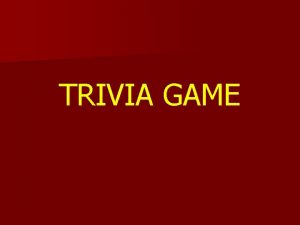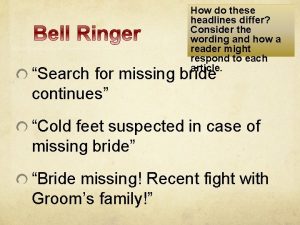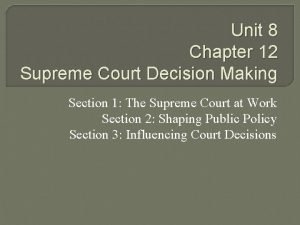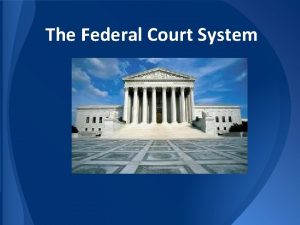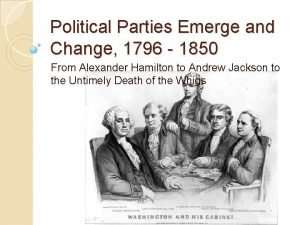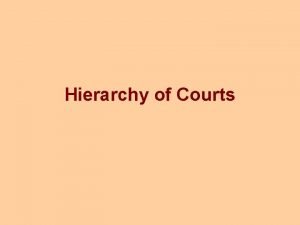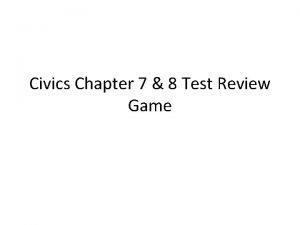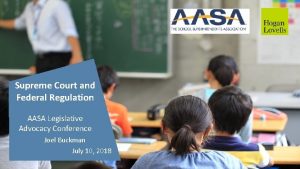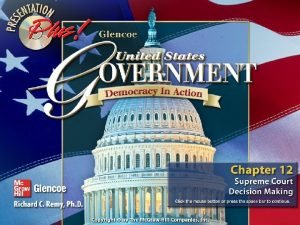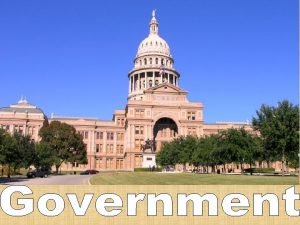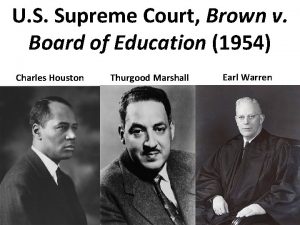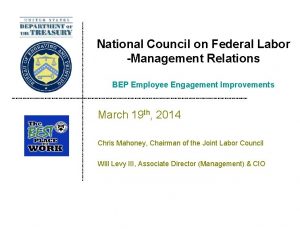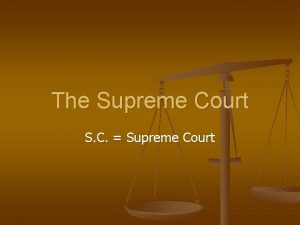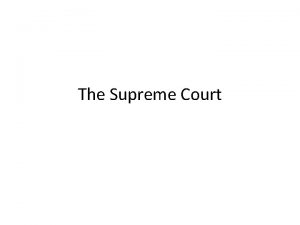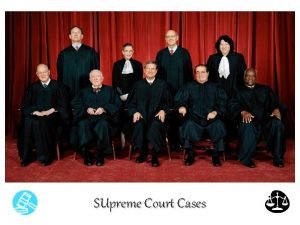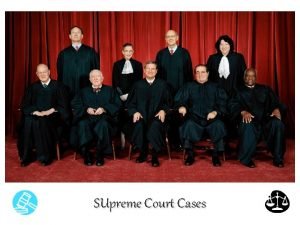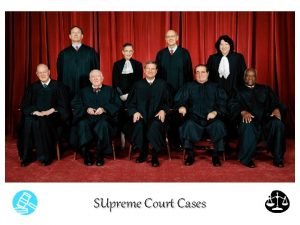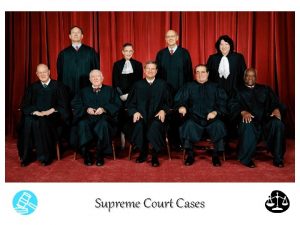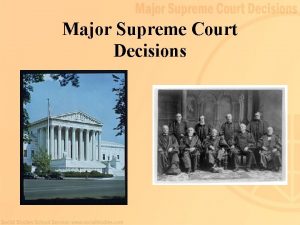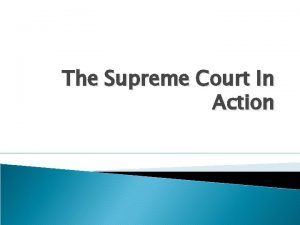The Supreme Court of the USA History known












- Slides: 12

The Supreme Court of the USA


History • known as "SCOTUS" • the highest federal court of the United States • It was created by the Constitutional Convention of 1787 as the head of a federal court system, though it was not formally established until Congress passed the Judiciary Act in 1789. • Article III. , United States Constitution • The judicial power of the United States shall be vested in one Supreme Court, and in such inferior courts as the Congress may from time to time ordain and establish. The judges, both of the Supreme and inferior courts, shall hold their offices during good behaviour, and shall, at stated times, receive for their services a compensation, which shall not be diminished during their continuance in office.

Function • The Court can rule laws and executive actions unconstitutional using the power of judical review • It can declare acts of Congress or the state legislatures unconstitutional • Executive, administrative and judicial actions are also a subject to review by the court. • The Supreme Court is the final interpreter of federal constitutional law

Justices • Chief justice and eight associate justices • Life tenure • Judges are divided into conservative and liberal in the way they approach the interpretation of the US Constitution. • 9 = 6 -republican, 3 -democratic • Chosen by the president, confirmed by the Senate .

First row: justices Kennedy and Stevens, Chief justice Roberts, justices Scalia and Thomas; second row: justices Alito, Ginsburg, Breyer and Sotomayor .

Chief Justice • Head of the US federal court system DUTIES: • presides over the court during all private and public conferences and sessions • Decides who writes the majority opinion if he or she is in the majority. • sets the agenda for the court case "discuss list. " Only those on the list will be considered. However, other justices can ask to have a court case included • Administers the presidential oath of office • Presides over any presidential impeachment proceedings .

John G. Roberts Jr. .

Samuel Chase • Has been impeached, but later acquitted by the Senate • Critical of policies in front of Baltimore grand jury • Objected to changes that gave more men privilege of voting • Democratic-republicans • Federalists • Senate failed to achive 2/3 majority neccessary to impeach .

Jurisdiction • Original and appelate jurisdiction • Original cases - cases involving diplomats, a dispute between the states or a case in which a state is involved i. e. cases for which no other court is competent • Appeals – The court has the power to decide if it will hear a case on appeal. If it does not choose to hear the case, the lower court ruling stands. If it hears a case, it can choose to uphold or overturn the lower court's ruling .

Caseload • • 100 cases per term (plenary review) Justices sort cases upon the merits Law clerks – unworthy and important issues Caseload increased to total more than 10. 000 Formal written opinions delivered in 80 -90 cases 50 -60 without plenary review By statute (set in 1917) begins on the first Monday in October and ends in late June • Each year the court receives some 7, 000 certiorari requests

THE END
 Is there a basketball court above the supreme court
Is there a basketball court above the supreme court What do these headlines say about how the supreme court
What do these headlines say about how the supreme court Vocabulary activity 12 supreme court decision making
Vocabulary activity 12 supreme court decision making Us circuit court map
Us circuit court map Political parties
Political parties Hierarchy of criminal courts in india
Hierarchy of criminal courts in india The u.s. supreme court works chiefly as a(n)
The u.s. supreme court works chiefly as a(n) Supreme court does
Supreme court does Supreme court does
Supreme court does Have supreme court
Have supreme court Indictable offence
Indictable offence Supreme court
Supreme court Supreme court
Supreme court
